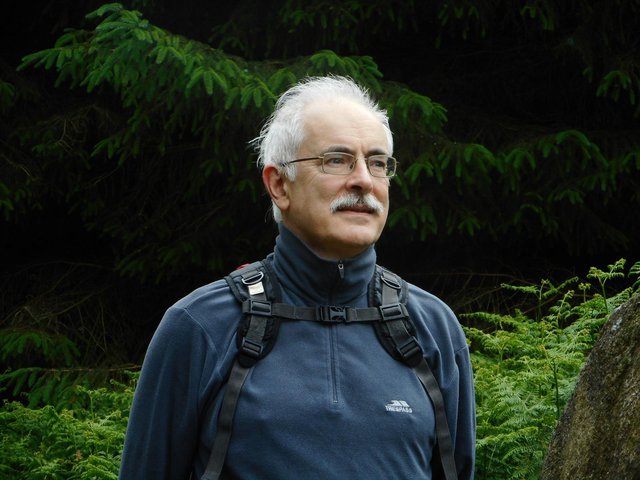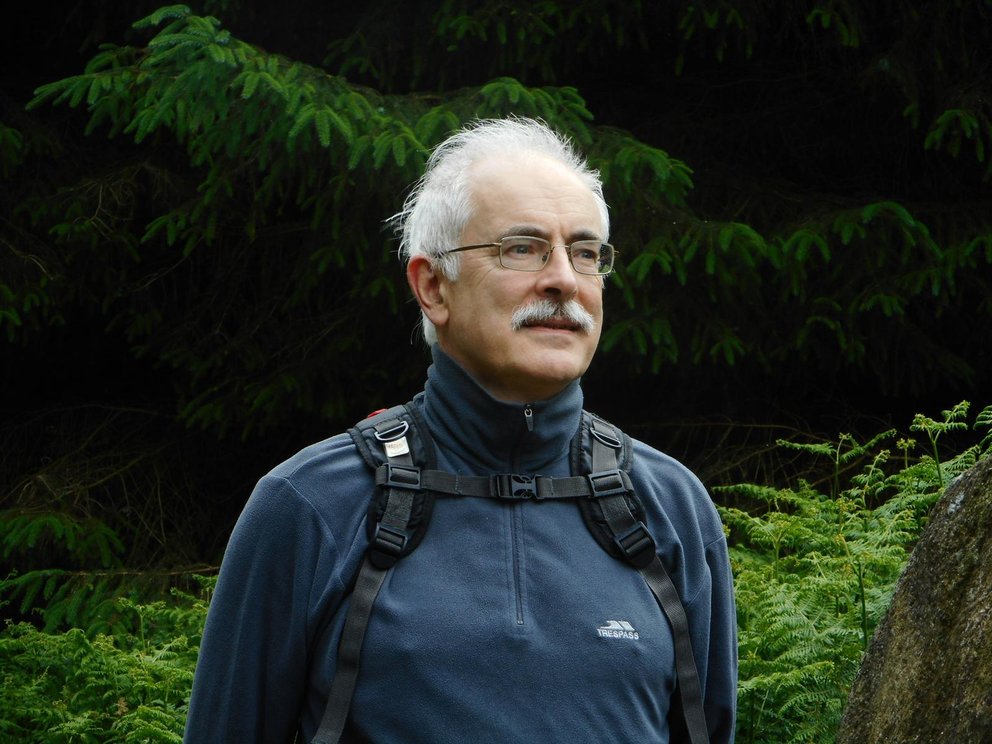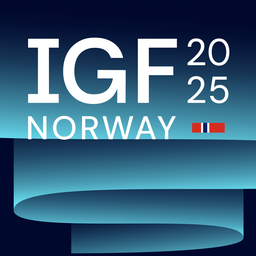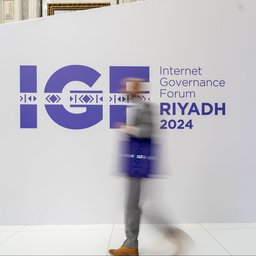RIPE has a new Vice Chair! Niall O'Reilly is a familiar face at RIPE Meetings, having first attended back at RIPE 3. We asked him a few questions to learn more about his long involvement in the RIPE community.
Could you tell us a bit about yourself and your engagement with the RIPE community?

Since then I’ve been Chair of a working group, co-Chair of another working group, a general troublemaker - and I’ve also been involved in some of the unofficial activities that take place around the RIPE Meeting, like the Climbing BoF where I get together a group of people to go to a climbing gym in the area.
I was involved in leading the Top-Level Domain Working Group which started at the first Dublin RIPE Meeting. At the time I was operating the registry for .ie so it seemed reasonable to have somebody operating a registry in the working group. We worked on it for a while and it became apparent that rather than have this activity continue in RIPE, a new organisation would be a better home for it. That is how CENTR grew out of the activity of the RIPE working group.
ENUM was another DNS-related working group, which was about mapping phone numbers into the DNS. Carthen Schieffner and I found ourselves leading that working group, which we did for quite a while, even after it became obvious that the interest in that technology wasn’t so strong. It took a long while before the interest completely died out and we were happy to provide a focus for people to exchange ideas that they wanted to talk about. Since then I’ve been a quieter member of the RIPE community. I’ve been coming for meetings until I decided to retire from the UCD, and after that I had only my private budget to depend on, so I wasn’t coming for all the meetings. I was coming for maybe only one meeting a year depending on where it was.
What led you to stand for the RIPE Chair nominations and eventually accept the role of Vice Chair?
Well I’ve enjoyed a lot of support, both technical support and moral support back since 1990. I’ve always felt that if I have the opportunity to give something back, I should grab that opportunity. When I got an email from a friend asking if I was prepared to be nominated, I thought about it for a little while, checked with senior management at home (if it was something my wife wasn’t going to like there would be little point) and then agreed. It’s for me mostly about taking the opportunity to give something back to a community that has helped me a lot over the last three decades. It’s surprising to think that’s how long, but it’s been most of my career.
The RIPE community is pretty unique in how it's organised. How do you see the role of the RIPE Chair and Vice Chair in the community? What values do you think they stand for?
The key element of this kind of leadership is listening. And matching what one hears to one’s understanding of what the RIPE values are, and how these can best be promoted, and if necessary, defended. Here the key values are openness, common endeavour and mutual support. For the leaders of the community, whether it’s at the Chair and Vice Chair level or the working group Chair level, the challenge is more or less the same – it’s to find ways to facilitate the promotion and adherence to those values by the community. It’s very easy to find an attractive solution which somehow ignores the needs of somebody else, or which even unintentionally marginalises some of the other people in the community. That’s maybe putting it rather starkly, but the leadership has to be very much aware of what we mean by ‘consensus’.
It's not necessarily about finding the most effective way forward immediately in the short term but finding a solution that people are able to live with for the medium to long-term. Leadership comes back to listening, repeating messages back to the community that the community seems to be giving and trying to refine those messages back to something that everybody can live with.
Are there any particular trends or developments that you’ve seen emerge within the RIPE community over the past few years?
It’s an industry that moves quite fast. When you have new technology emerging or new areas of possible interest for communities like RIPE, sometimes you find that the fit isn’t perfect and it’s better to spawn another organisation to take over those activities – like CENTR, for example. At other times, you have an activity that seems to be very promising but somehow in the real world those results don’t arrive – here I’m thinking of the ENUM working group. Initially it seemed like it would make life easier, but it turned out that there wasn’t a need for global cooperation that we find in areas like routing or the DNS.
Subsequently the setting up of the Cooperation Working Group, where the emphasis isn’t so much technical as the interaction between technology, government, civil society and regulation is a fascinating area. We’re looking more at how technology impacts civil society and how the community and the industry need to interact with the government, state agencies and regulators, including LEAs. That’s been an important development in the RIPE community, that we have found a way to recognise an area which needed attention, and a way to find a focus for cooperation in this area, similar to technical activities.
The most interesting new activity is the Internet of Things because that promises to be really pervasive and it is full of particular risks to people’s privacy and control of their domestic environment, which need to be highlighted. The risks need to be matched with the opportunities, conveniences and payback which it promises. The overall impression that you can take is that the RIPE community is ready to find ways to direct attention to the new things when they matter, and as they matter, and to move on if it turns out that something that was promising to be interesting turns out to be less so.
Do you see any changes on the people side, with the interactions within the community or the growth of the community?
There is this general social dynamic of the RIPE Meetings, that have been getting bigger. It’s quite bewildering for a newcomer. We’ve had a special session for first-time attendees for quite a few years now with the RIPE Chair, the Managing Director of the RIPE NCC and some WG chairs. And there are the social activities on the margins of the RIPE Meetings as well. It is important to be more aware of whether there are more people coming to community events, if newer attendees are being made to feel more like observers rather than participants. And that’s something that I expect to have to be sensitive to, more so than before.
The other thing is to look at is who is not coming to RIPE Meetings that maybe should be. It sounds like a terribly cynical marketing approach, perhaps. It’s looking to see who else can help or be helped by that kind of outreach – and how can we make our community relevant and attractive to additional segments or potential segments of participants, while keeping the core values that have apparently served us so well until now.
Is there any change that you would like to bring about in how things work?
I think it’s difficult to predict what change is going to be necessary or appropriate at this stage. The chief commitment of the Chair and the Vice Chair is to listen, and then as the need for action becomes clear, to take any such action quite confidently and decisively. There are one or two things that probably need some changes or emphasis and one of these is the clarification of the identity of the RIPE community separately from that of the RIPE NCC. Not that I envisage any great parting of the ways there, but rather that when people in the industry hear the word ‘RIPE’ they think of the Internet registry and the membership organisation that is the NCC. They don’t appreciate that there’s a community there as well that has its own separate existence and its own activities that are closely linked to the RIPE NCC but still distinct. I think we need to find suitable ways to make sure the RIPE community flag is visible on the flagpole as well as the RIPE NCC one beside it.
There’s a new Chair and Vice Chair working together. How do you see that going forward?
Well we have to wade into that and see how it works. So far, the experience has been very positive. When you have two people working together as a team, there is more support than if you have a single individual. That said, the Chair is always going to be a bit more prominent and exposed, and more vulnerable than the Vice Chair. We have to work out which tasks will fall to one of us and which ones to the other. We have to work out how we support each other and to facilitate the activities that each of us takes in the roles. It’s going to be community development on a microscale with just the two of us. It’s going to reflect in some ways on what we’re going to do with the community as a whole.
Do you prefer a virtual RIPE meeting or a physical meeting?
Each of them has benefits and they’re complementary ways of doing things. For many years the physical meetings have also been livestreamed on the Internet, so that people who cannot travel can join the meeting sessions. When I was a working group chair (and I’m not the only one who has had to do this), on occasion, I wasn’t able to travel for family reasons or pressure at work. The possibility to follow the meeting that I should have been leading was very important. Remote participation is a big advantage. Another advantage of the virtual meeting setup is that it is a shorter format and sessions are not happening simultaneously. When I’m at a physical RIPE Meeting I often have to decide which parts of sessions I will go to because they are both interesting and happening at the same time. On the other hand, I can imagine that coordinating the virtual meeting requires even more coordination effort from RIPE NCC staff.
There was an interesting RIPE NCC Open House session a while ago on the differences between physical and the virtual meetings, and one of the topics that came up was the coffee break conversations. You’re standing in a queue for coffee and suddenly you end up in a mini meeting with three or four people, that couldn’t have been scheduled and could only have happened accidentally. This can’t take place in a virtual environment nearly so well as it does in a queue for coffee. Serendipity can be very powerful, and you get to hear views about a current problem or interesting new development, and you can make a leap of understanding that is difficult to plan.
On the other hand, the virtual meeting has the advantage that a much larger number of people registered, it seems to have increased participation. It will be interesting to see if Zoom fatigue has an effect – whether the increase is a reflection of novelty or a feature of remote meetings that we can expect to persist. The other thing I missed at RIPE 80 was the spontaneous evening events.





Comments 0
The comments section is closed for articles published more than a year ago. If you'd like to inform us of any issues, please contact us.